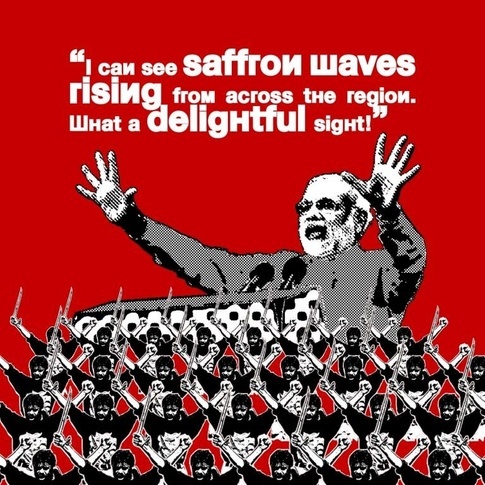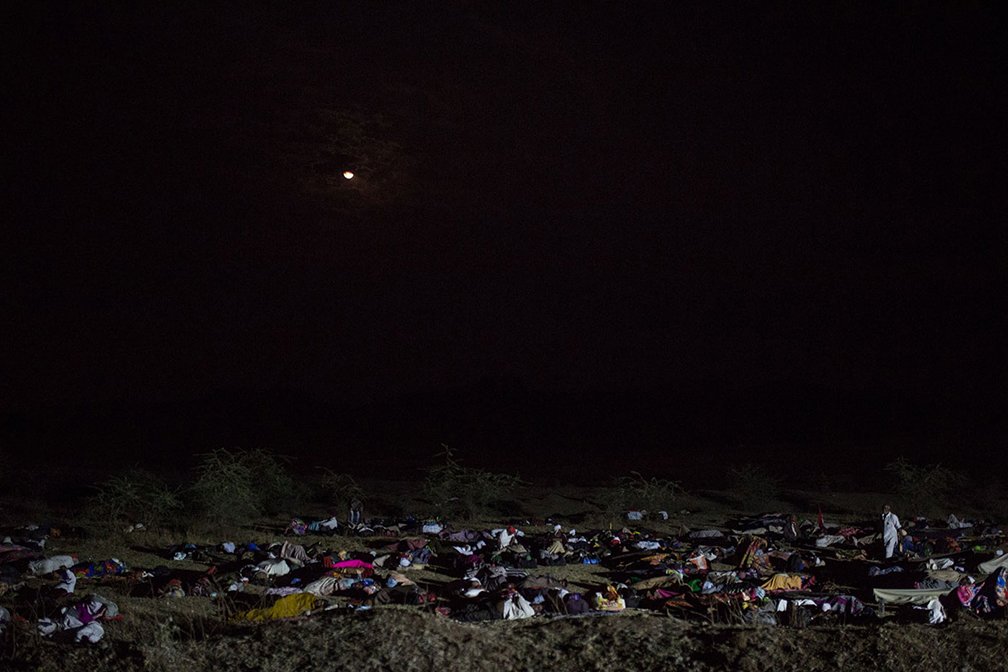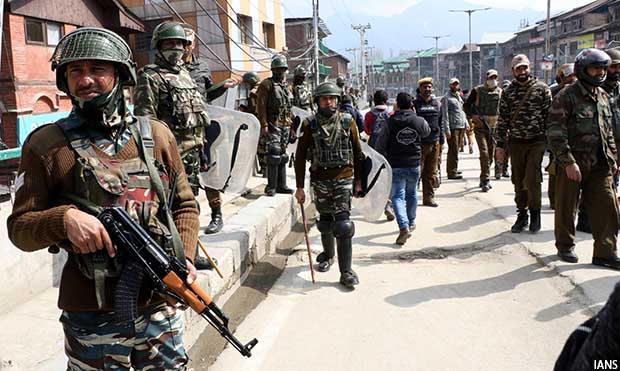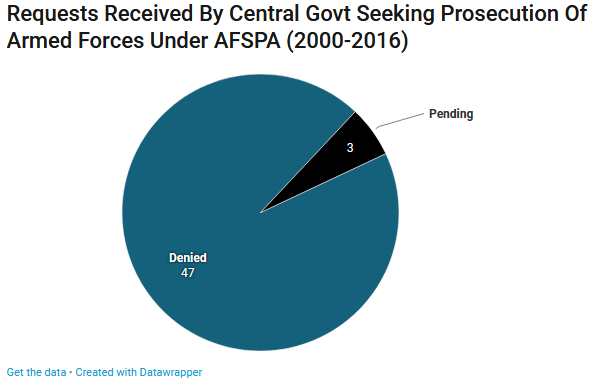In his second essay in a new series for openDemocracy, Paul Mason argues that only a new left internationalism that accepts a limited reassertion of national economic sovereignty can defeat the rising tide of authoritarian populism.

Image: Visit Flanders, CC BY-NC-ND 2.0
If there is a founding document of social democracy it is Eduard Bernstein’s ‘Evolutionary Socialism’. Written in 1899, it taught the leaders of the Social Democratic Party of Germany (SPD) that capitalism had permanently stabilised; that socialism would be achieved through parliament – not the industrial class struggle – and that the working class of the 20th century would be neither culturally homogeneous nor spontaneously socialist.
Social-democrats should stop waiting for a mega-crisis to kill capitalism, stop obsessing about mass strikes and the dictatorship of the proletariat, and make a moral case that, while capitalism had improved the workers’ lot, socialism could do it better. [i]
The stability lasted a mere 15 years, ending on the day Bernstein’s party voted for the war budget of Kaiser Wilhelm II. By 1919 the dictatorship of the proletariat was an actuality – not just in Russia but in Bavaria and Hungary. What was left of the SPD entered the first coalition government of the Weimar Republic where, on Bernstein’s advice, it resisted the attempts of its own left wing to “socialise” the economy and ruthlessly suppressed the communist left.
If there is a re-founding document of social democracy, it is Anthony Giddens’ book ‘Beyond Left and Right’. Published in 1994 it emerged, like Bernstein’s work, from a critique of orthodox Marxism. Like Bernstein, Giddens argued that the structure of capitalism had changed, creating conditions that made the old programme of state-led socialism permanently impossible. Once crystallised into the doctrine of the Third Way, in the 1998 book of the same name, Giddens’ ideas provided the ideological frame for social-democratic governments in Britain, Germany, Australia and the Netherlands, and for Bill Clinton’s second term in office.
Unlike Bernstein, Giddens never claimed capitalism had become permanently stable; instead it had become permanently mercurial in a way that was potentially benign, so long as progressive governments could take control. The task of social-democrats was to help working class people survive amid the permanent insecurity and disempowerment that globalisation had unleashed. Instead of a programme to clear the capitalist jungle, social-democracy would become a kind of survival kit.
The general crisis of social democracy is happening because the world Giddens described has vanished. The world of Trump, Putin, Erdogan and Xi Jinping is as different to the world of Blair and Schroeder as the street fights of Weimar were to the peaceful, electoral socialism of the 1890s.
Twice, then, in the space of a century, social democracy has entered crisis because its strategic project came to be based on conditions that ceased to exist. If we survey the remnants of centrist social democracy and social liberalism – Renzi in Italy, Schulz in Germany, Hillary Clinton in the USA and the Progress wing of the British Labour Party – the image that springs to mind is of shipwreck survivors clinging to pieces of wreckage.
Schulz clings to Merkel, Renzi wanted to cling to Berlusconi, but they both lost so many votes it became pointless. Hillary Clinton clings to Wall Street. Labour’s Progress wing clings to the possibility that a new, Macron-style centrist force will emerge to save it from the nightmare of the Corbyn leadership. All of them are clinging to a form of globalisation that has failed; and for the Europeans it has become obligatory to cling to the Europe of the Lisbon Treaty – even as this, too, is failing.
To renew social democracy we have to do what Bernstein and Giddens were trying to do: construct an analysis of the world we live in. Both argued from premises concerning the future dynamics of capitalism, the role of the state in the economy, and the atomisation of class structures, cultures and alliances that had prevailed in the decades before them. Significantly, both were critically engaged with, and borrowed eclectically from, the Marxist method of historical materialism – a method of no concern to the party apparatchiks who used their theories as adornments for the project of managing capitalism.
Starting from a material analysis of the world – rather than a list of policies, tactics and principles – is a tradition that got lost inside European social democracy during the neoliberal era. Neoliberalism’s ideological premise was always anti-theoretical: don’t ask why this kind of economy exists, or how long it can last – just accept it as permanent and get on with making it better.
So amid the panic – as the Alternative fur Deutschland (AfD) draws level with the German SPD in opinion polls, and as the Italian Partito Democratico (PD) slumps below 20% while populists and xenophobes surge – we must start by analysing the situation, not by issuing frantic demands that the word “go back to normal”.
***
If neoliberalism is broken, what exactly is the central mechanism that has failed? It cannot be that the collapse of a mere banking system has turned large parts of the population of the West against universal rights and cosmopolitan social arrangements.
Goldsmiths University economist William Davies offers two definitions of neoliberalism which explain why the world Giddens described – and fairly accurately – has disappeared.[ii]
The first is “the elevation of marked-based principles and techniques of evaluation to the level of state-endorsed norms”. Davies points out that neoliberalism, over time, became less about the creation of exchange-based relationships and more about the imposition of competitive behaviour in areas where no market could exist.
School league tables and global university rankings are just two examples of this – a third being the fake tendering process which has seen billions in public service contracts handed to firms like Carillion and Interserve. For Davies, it is economic calculation – not markets per se – that is being coercively forced into all aspects of life under the neoliberal system. That leads to his second, pithier, definition of neoliberalism: “the disenchantment of politics by economics”.
Neoliberalism failed because it was not a solution to the problems of the Keynesian system but, in fact, a work-around. What caused the ruin of both models was their inability to sustain both productivity and corporate profitability.
Between 1989 and 2008 growth was driven by unsustainable financial expansion, by fiscal deficits, by the rapid catch-up of Asia and Latin America, and by the expansion of the working population. In 2008 a global system reliant on financial fiction exploded. As a result, we now have a global economy kept afloat by $19 trillion of central bank money creation, by the permanent socialisation of banking risk, and where many of the advanced industrial countries exhibit the following features:
- Rising inequality boosted by the surge in asset values triggered by quantitative easing.
- Entire sectors dominated by rent-seeking monopolies.
- A global financial elite clustered around the defence of its strategic privilege – which is to keep its wealth in offshore jurisdictions and unavailable to the tax collectors of nation states, and therefore immune to redistribution.
- High under-employment and precarious work, as millions of people are employed in what David Graeber calls “bullshit jobs”; real wages failing to keep up with the rising asset wealth of the 1%; and a historically low wage share.
- A global market that has begun to fragment along regional and national lines; the stalling of trade liberalisation treaties; the Balkanisation of finance systems and the information economy; and the beginnings of an open trade war.
There are typically three kinds of response to this situation among national political elites. The first is to try to maintain the status quo, resulting in the continued rise of inequality, continued impoverishment of workers and the lower middle class. This is the approach of Macron in France, Merkel in Germany and the liberal-conservative Remain lobby in the UK.
The second is a kind of “nationalist neoliberalism”: the attempt to deepen the coercive introduction of market mechanisms through a partial break with the multilateral global trade system. This is the intention behind the European Research Group (ERG) inside the UK Conservative Party: to scrap environmental and safety regulations, and to scrap – as Liz Truss wants – professional licensing and qualifications that are said to “suppress growth” by insisting that doctors, airline pilots or physiotherapists must be licensed and therefore difficult to replace with the precariat.
It is, in effect, “Thatcherism in One Country” – and it also forms the unacknowledged common ground between the three factions of the German right: the AfD wants deeper free market reforms but no immigration; the Free Democratic Party (FPD) wants Germany to double down on gaming the Eurosystem to let the rest of Europe go hang; so effectively does the right wing faction of the Christian Social Union (CSU) around Alexander Dobrindt who, for good measure, wants a “revolution” to roll society back to a pre-1968 social conservatism.
A third response – best illustrated in Europe by the Law and Justice government in Poland – is to break overtly both with neoliberal economics and “liberal democracy”. Law and Justice has secured a 49% poll rating not only through crass nationalism and dog-whistle antisemitism, but by daily verbal attacks on “liberal democracy” and the elites who profit from it, and by distributing significant universal welfare payments to working class people. Liberal democracy gets in the way of the real democracy – which is the will of the white, Catholic Polish people, untrammelled by such things as an independent media, judiciary and multilateral obligations. That is the message of Law and Justice.
None of these responses can remedy the breakdown of neoliberalism strategically. The problem is, however, two of them could work temporarily and locally, providing that the national elite concerned is prepared to renege on multilateral obligations to its trading partners. In the 1930s such attitudes were described as “beggar thy neighbour”. In modern parlance, it’s about being prepared to say to other countries: fuck you.
Law and Justice has placed itself on a collision course with the European Commission, while the Tory ERG wants Britain to stage a hard, confrontational exit from the EU altogether. Trump, likewise, with tax cuts that will boost America’s debt pile and a trade war over steel, is determined to deliver a revival of prosperity in the USA at the expense of its key trading partners.
Social democracy’s problem is that for 30 years it moulded its project around the priorities of the neoliberal model, and around the certainty that a multilateral global system would (a) always exist, and (b) deepen.
Both conditions have been falsified, while the neoliberal elite’s priorities are rapidly evolving to adapt to the growing power of authoritarian kleptocrats and the Mafiosi who trail behind them.
The basic problem with the Macron strategy – carry on regardless with a globalised free market – is that it cannot be done by standing still: you have to double down on the coercive imposition of competitive behaviours and values onto a population weary of being coerced. You have to renew TTIP; you have to do more privatisations; you have to go expanding the EU to the East, pulling in yet more xenophobic and corrupt national elites. If we return to Davies’ definitions (the elevation of market principles to state endorsed norms, and the disenchantment of politics by economics), we can say with certainty that these are strategies that no longer work. People have had enough of free market coercion and are prepared to “re-enchant” economic decision making with the only things that lie to hand: nationalism and xenophobia on the one hand, radical anti-authoritarianism, feminism, environmentalism and leftism on the other.
To renew social democracy, we need to stop clinging to the wreckage. Even though it was mainly window dressing for Blair and Clinton, the Third Way was a serious and coherent theory. Some of its premises survive even though, as a practical project, it is dying.
***
Giddens’ framework for radical politics in the neoliberal era consisted of six priorities. The first, to “repair damaged solidarities”, involved recognising that even the free-est market makes people interdependent. While the neoliberal right would have us stab each other in the back, people with a stiletto between their shoulder-blades will still need a hospital to go to.
Second, social democracy had to accept that instead of improved economic conditions, people would fight over “life politics” – that is for the individual freedom to behave as they please. Unequal opportunities to do so – as we are today seeing with the #MeToo movement – could, he said, be a much stronger driver of protest and radicalism than pure economic inequality.
Third, in place of solidarity there would have to be “generative politics”: social democracy had to create a space between the state and the market in which people could do things for themselves, which neither the state nor the market were capable of delivering.
Fourth, recognising that globalization would weaken the formal democracy of states, Giddens called for a democracy of self-help groups and social movements. These, it was understood, should forget trying to bend the state to their wishes – it was irrevocably under the control of corporations and destined to shrink – but they could achieve stuff for themselves, empower themselves, and boost their own emotional literacy in the process.
Fifth, the left must be prepared to rip up the welfare state. Instead of a safety net designed to protect people against “what might happen”, it had to be a kind of survival guide. The welfare state, said Giddens, was sexist, bureaucratic, impersonal and never fully eradicated poverty anyway.
Finally and perceptively, Giddens warned that a neoliberal global order would lead to violence, and that the left needed to find ways to mitigate that. When social conflict occurs in a globalised free market, Giddens said, you can’t solve it by coexisting or by separation.
“No culture, state or large group can with much success isolate itself from the global cosmopolitan order,” Giddens wrote.[iii] As a result, conflicts would lead more quickly to open violence and the left would have to be the party of dialogue not conflict.
What strikes me today about this political framework, on which Third Way social democracy was built, is its absolutism. The state would wither, the market would triumph, the welfare state would have to be abandoned, class solidarity would collapse, and individual lifestyle politics would dictate everything. This was the assumption.
But nearly 25 years after its publication all of the things that were considered already gone are still here, even in a society like Britain which became under Major, Blair and Cameron a laboratory of social atomisation. The RMT union is still able to shut down London’s Tube network; the welfare budget still makes up 34% of all state spending in the UK; market experiments in the railway system have gone badly wrong. Even at my local tube station in London, there is a union rep who defies the management instruction to wear a name badge by sporting one with the word “Lenin”.
Though Giddens never subscribed to the “end of history” thesis, the assumption underpinning his project was that markets were efficient and tended towards equilibrium and prosperity. Like Bernstein, he created a formula for coping with capitalist stability that failed to survive the return of instability.
In the hands of Blair, Clinton and Schroeder these assumptions became an excuse for venal collaboration with the interests of corporations against those of the very people who voted for social democracy. But even in their purer, academic form, Giddens’ assumptions have been negated by the political, economic and social realities of the capitalism that emerged after 2008.
The most important fact about the new reality is that, since 2008, states, regions and communities have begun to attempt to exit the system. What was deemed impossible has become the dominant trend: the desire to cancel, reverse or block globalisation. Whether it be the globalisation of workforces through migration, or the privatisation of the public realm in the name of trade liberalisation, or the impoverishment of industrial communities through offshoring.
Interestingly, the very forces Blairism assumed were spent – community, trade unionism, working class identity and of course language and ethnicity – have been factors driving this rush for the exit, both to the left and right.
As Giddens predicted, such projects are met with violence – sometimes literally as the Catalan people found out on 1 October 2017 – and sometimes via the more subtle coercion of closing a nation’s banking system, as the Greeks experienced in June 2015.
But wherever the “exit” strategy is adopted, the key institution is the one Giddens – and Blair – assumed would have diminishing power in a neoliberal universe: the democratically elected national government.
As to what is driving the desire for exit, it is primarily insecurity. All over the world, state welfare provision has been ripped up, but not replaced by any new forms of solidarity as Giddens advocated. As I wrote in the first essay of this series, one of the huge drivers of populist anger and insecurity is the enhanced fear of “what might happen”, whether it’s the possibility of the working class person falling into the under-class because they lose their highly precarious job; or a migrant occupying a place in front of you in the doctor’s waiting room; or a home-grown jihadi terrorist blowing up your children at a pop concert.
“No more change!” was the demand campaigners in Thuringia told me they heard on the doorstep, from voters who had switched to the AfD. Ludicrous as it may sound to the paid-up technocrats who still believe in neoliberalism, it is a rational desire when change brings only stress, impoverishment and anxiety – and in this case perceived competition for a limited welfare and social budget.
Practically, far from empowering those from whom the safety net was removed, neoliberal policy during the crisis became increasingly focused on coercing them, as with the scandalous disability assessments by the DWP in the UK or in the mass incarceration programmes of black people in America which boomed under both Clinton and Obama.
Finally, and ironically, it has been the populist right and radical left, together with some cosmopolitan nationalist parties and environmental NGOs, who have engaged with the task of “repairing damaged solidarities”. Blairite social democracy might have urged people to discover the new solidarities of suburban life, or the professionalised workplace or the private members’ gym, but these were unavailable to the newly impoverished lower-strata of the workforce neoliberalism created. They clung, instead, to what was left of their old solidarities, which – as I have described in ‘The Great Regression’ – were often stripped of their progressive content.[iv]
***
That the Third Way doctrine suffered the same ultimate fate as Bernstein’s “revisionism” is no accident: both were formulated during the upswing and stabilisation phases of a global economic model. Neither could survive the model’s crisis.
Indeed, understanding that our task today is to construct a “crisis politics” – not a survival guide for the losers within a successful form of capitalism – is the first step towards a solution. In subsequent contributions I will try to spell out the details. Here, however, it important to state the broad conclusions if you accept the idea that neoliberalism is over.
First, the rise of authoritarian nationalist projects among some western elites is both logical and inevitable, given their histories. You only have to listen to the British elite’s continuous dirge of devotion to Winston Churchill to understand how powerfully the myths, narratives and traditions of national bourgeoisies guide their actions, even in the age of Davos and globalised consumer culture.
When I asked Polish progressives at a seminar last month, “why is a section of the Polish elite prepared to break with globalisation and seek nation-centric and xenophobic solutions?”, they simply shrugged and said: “that’s what they did in the 1930s”.
It is not that the globalism of the elites during neoliberalism was fake – only that, in the entire history of industrial capitalism there have been only two modes of regulation: the nation-centric one and the multilateral globalist one. Most elite groups in the world have intellectual traditions that can accommodate both, and some are prepared to reach into the dark basement of those traditions to revive the nationalist ideologies that suited their grandparents. What sections of the elites and intelligentsias of Poland, Hungary, Italy and Austria are doing now is no mystery. It’s a reversion to type.
Second, the rise of authoritarian populism and xenophobic narratives among the populations of many western democracies is – as I argued in the first essay – the result of the breakdown of a coherent narrative and of intense perceptions of insecurity. The strategy of keeping the economy on life support does not keep the ideology that underpinned neoliberalism on life support. The reward for all the backstabbing, atomisation and conformity to market individualism was supposed to be prosperity. Once that disappeared, the story became incoherent.
It follows from this that social democracy – and the wider progressive movements it must ally with – needs to construct very quickly a new narrative about how the world gets better for you, your children, your community. People want to know how life becomes less insecure, and how change becomes more predictable and manageable. Unless the left answers that question, the xenophobic right will do so.
Third, logically the new project of social democracy must be framed around a radical break with neoliberalism. What is destroying our movement is that a whole generation of social democratic leaders have tied their personal prestige and identity to an economic model that no longer works.
Schulz wanted to keep Merkel in charge forever; Renzi in Italy would rather see Berlusconi in power than admit the grievances that are driving people towards the Northern League and the Five Star Movement were real. Indeed, when I spoke to Italian social democrats before the election disaster of 4 March, it was always the possibility of being beaten by Beppe Grillo’s Five Star Movement, not the racist FI-Lega Nord alliance, that haunted them. In Britain, the spectacle of Haringey’s Labour leader Claire Kober self-destructing amid mass popular opposition to her housing privatisation project, is a vignette painted from the same colour scheme.
To be clear: a break with neoliberalism means a limited, reversible and calibrated retreat from some aspects of globalisation.
To salvage what is salvageable from the global system we must prevent its implosion: that means preventing the chaotic breakup of the EU, the collapse of multilateral global trading arrangements and – the ultimate threat – a spate of mutual debt defaults during which everyone heads for the exit in a disorderly manner.
Here the analogy with trench warfare holds good. If the front trench is overrun, the last person standing in it is going to get bayoneted. Better to retreat to the next trench and defend that.
This has informed my approach to Brexit. The substantive issue was always going to be: what form does the semi-detached relationship of Britain to the EU take in future. I voted Remain because the alternative – which has now transpired – was Boris Johnson and Jacob Rees-Mogg constructing Thatcherism in One Country, with Naomi Klein’s ‘The Shock Doctrine’ used as a handbook.
Because people were told freedom of movement was non-negotiable inside the EU, they voted to leave it. They did not believe the assurance that “ever closer union” no longer applied to the UK – and the actions of the European Commission during the Brexit negotiations have tended to confirm that suspicion.
Given that, it is neither possible nor desirable to use intrigue and elite chicanery to override the votes of 17 million people. What is possible is to persuade them to accept a limited – and thus reversible – semi-detachment from the EU in the form of a Norway style agreement, a customs union or something in-between.
The question for Europe’s social democrats is far bigger than the one that usually greets me in seminars and one-to-one meetings, which is “how do we emulate Corbyn?”. Nevertheless, it is worth reminding ourselves that UK Labour’s current recovery and dynamism is premised on the fact that, first, Britain was always effectively exempt from the Maastricht rules mandating fiscal austerity.
Corbyn’s ability to draft a post-austerity manifesto, centred on a £250 billion borrowing programme and a £50 billion tax redistribution plan, together with some limited renationalisation and a state investment bank, was an act of imagination unavailable to Renzi, Sanchez and Schulz.
On top of that, Corbyn has – correctly – accepted the result of the Brexit referendum, refusing the invitation from the die-hard Blairite right to destroy his own party by labelling a third of Labour voters deluded xenophobes.
What lesson can the rest of European social democracy draw from Labour’s success? The exact lesson they refuse to draw: which is that “retreating to the second trench” means adopting as an overt goal a revision of the Lisbon Treaty in favour of greater social justice. Europe has to be redesigned to allow state aid, nationalisations, the equalisation of social safety nets and minimum wages – removing the Maastricht criteria on debt and borrowing which mandate austerity.
A Corbyn government in Britain, and a Sanders or similarly left-led Democratic Party government in the USA, would at least have some fiscal freedom. Until they can imagine themselves operating in the same way – either collectively across an alliance of core EU countries or individually – the European social democratic parties will go on destroying themselves for the sake of Lisbon and the Bundesbank. They should stop doing so.
***
Which brings us face to face with a general principle: over the next five years the venue in which authoritarian populism and economic nationalism have to be fought is the nation state itself, and state-level democratic institutions.
Trump will be beaten at the level of Federal elections, the Supreme Court and the FBI, not the WTO or the United Nations. Orban, Kaczinsky and the Blue-Black coalition in Austria will be beaten at the level of the national cultures, parliaments, intelligentsias and the national demos – not through the authority of the European Commission and tongue-lashings by Guy Verhofstadt in the Brussels parliament (welcome though these may be).
Done intelligently, and without conceding to the rhetoric of the right, a limited reassertion of economic sovereignty is going to be key to the revival of left politics both in Europe and the USA. Indeed, if it had been done five years ago then, like a flu jab, it might have prevented the current sickness.
Working out how to reform capitalism to meet the needs of those on stagnating wages and in precarious jobs becomes easier once you accept that the place that is going to be done is national parliaments and regional assemblies. They will still have to be constrained by multilateral agreements, but they will probably look more like the flexible deals that preceded the heyday of neoliberalism, not the inflexible ones that are currently falling apart. Customs unions, free trade areas, bilateral currency pegs, an exchange rate mechanism rather than a single currency for Europe, and a two-speed structure for the EU itself – these might have to be the forms in which globalisation survives.
For social democracy, internationalism – which was rooted into its practice from the formation of the Second International in 1889 – is a strong trench to fall back on as globalism evaporates. The globalism of elites – from Mar-a-Lago to Budapest – is proving depressingly fragile; the internationalism of left parties can, given the right basis, prove much more durable.
And social-democrats will not be the sole occupiers of this second trench: liberalism, radical left, feminism and green movement have all made strong intellectual contributions to the progressive, internationalist ideology that will have to replace free market globalism.
The advantage of forcing social democratic politicians to focus on the dynamics of their own society is that in most countries they face the same demographic challenge: cultural conflict between an educated, younger workforce with liberal values and a less educated, older workforce clinging to social conservatism. It is a split between the city and the small town; between old and young; and, at its worst – as with the alt-right in America and the populist right in Poland – it weaponises gender inequality as well.
From Bernstein to Giddens, the prophets of stability socialism always focused on the atomisation of class and community loyalties, and the decline of solidarity. As early as 1899 Bernstein warned that “the precision tool maker and the coalminer, the skilled decorator and the porter… live very different kinds of life, and have very different kinds of wants”. It would be easier to unite them around race and nation than it would around pure class politics, he wrote. A century later Giddens’ entire project was premised on the idea that most social solidarities – even ethnicity and nationality, let alone class – would be atomised under the impact of marketisation and networked individuality.
It turns out that the current struggle is not between atomization versus old solidarities; it is in fact a death match between two spontaneous solidarities that can no longer coexist.
For now, wherever the authoritarian right is on the march, it is mobilising people around nationalism, racism and sexism. Yet the ideology of an educated, networked, diverse, globally focused and tolerant section of society is equally spontaneous and, in some places, stronger.
In one way, the salariat, the Millennial generation and their natural allies among ethnic minorities, women, the LGBT community have achieved what Giddens had called for: an agency born out of fear. As he wrote: “Values of the sanctity of human life, universal human rights, the preservation of species and care for future as well as present generations of children may perhaps be arrived at defensively, but they are certainly not negative values.”
Instead of a proletariat with a historic, positively-defined mission, we might have to make do with a motley tribal alliance with many missions, some of them conflicting, Giddens said.
I will return to this question of agency in a future essay, but here it is worth acknowledging how closely Giddens’ 1994 position anticipates what came to be known in the anti-globalisation movement as “One No, Many Yesses”.
The difference is, today, we have two “Noes”: no to neoliberalism and no to the xenophobic right. In turn, that limits the number of “Yeses” that are practical in the short term: yes to defending universalism, yes to mitigating climate change and yes to upholding the rule of law. That should be the terrain on which the progressive forces of humanity come together.
But social democrats should not flinch from adding one more “yes” to this list, and that is to the right of electorates to use democracy to regulate and control the market at a national level – even if this means reforming, suspending or defying the institutions through which global corporations have dictated the world’s affairs for 30 years. That is the ground on which social democracy and the radical left should converge.
The journey towards a radical social democracy will be fraught with temptations to ditch what was progressive in the era of free market globalisation alongside what’s been wrecked. In fact, studying centre left thinkers who tried to move the SPD on from Bernstein between 1914 and the early Weimar era – Karl Kautsky, Otto Bauer in Austria and the workers’ control advocate Karl Korsch – I am struck by how unstable the centre ground was between Bernsteinism and Bolshevism. Every attempt by the German centre left to stabilize, humanise and democratize capitalism was outflanked by the venality of the ruling elite and the brutality of the street politics the far right adopted.
If there had been no USSR and no Leninism, could that large and vibrant movement of German workers who vacillated between the communists and the social-democrats in Germany between 1919 and 1929 have succeeded in creating a more sustainable left social-democratic pole of attraction than the one the doomed Communist Party of Germany (KPD) did? It’s an interesting ‘what if’. Put another way, in a time of crisis and breakdown, is radical social democracy even possible?
Because today there is no equivalent of the USSR, no Lenin, and a much-weakened industrial working class, we are destined to find out the answer to that question through our own practice.
Today we need a form of social democracy attuned to a period of crisis, not stability. Accepting the need for it is the first step towards achieving it.
[i] https://www.marxists.org/reference/archive/bernstein/works/1899/evsoc/index.htm
[ii] Davies, William. The Limits of Neoliberalism: Authority, Sovereignty and the Logic of Competition (Theory, Culture & Society) (p. xiv).
[iii] Giddens, Anthony. Beyond Left and Right: The Future of Radical Politics (p. 19). Wiley. Kindle Edition.
[iv] “Overcoming the Fear of Freedom” in Geiselberger H, ed The Great Regression, 2017
Courtesy: https://www.opendemocracy.net












